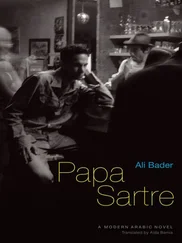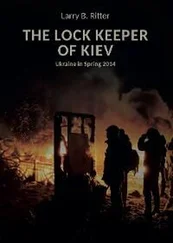It was love at first sight. He fell in love with her primitive, rural soul. She was made up of pure instincts and innocent emotions as direct as an arrow. Though illiterate and oppressed, she enjoyed the pleasures of life to the full. It was with complete sensual abandon that she ate her meals. Her sensuality swept him off his feet. She had a soul that was in harmony with nature in all its severity, rawness and wonder. Even her peasant dialect sounded deliciously exciting to his ears. Her instinctive behaviour pulsed with the richness of her spirit. Her sexual urge was also strong.
He wrote to Farida: ‘I loved this girl with all my heart. No other woman impressed and astounded me as much as she did. I didn’t know how ignorant I was of life until I met her. She had an instinctive kind of knowledge, even in sex, that hadn’t been spoiled by civilized existence. This illiterate woman taught me the meaning of life afresh.’
Everybody knew that they were having an affair in ‘secret’, including Nadia, who was on her deathbed.
At that time, Nadia stopped consulting doctors, for the painkillers were no longer effective. There was nothing she could do to relieve the pain that was concentrated in the middle of her head. No drug could alleviate the pain that gnawed between her temples, bored through her eyes and thumped in her brain to the point of nausea. She lay in bed and the sweat trickled slowly down the sides of her face. She longed for death to relieve her of the excruciating pain. During the bombing of Baghdad, Nadia died. Suddenly, on her bed, she was lifeless. Kamal Medhat let out a scream of pain and hurled himself on her body. Only Fawzeya was with him and together they carried her to her grave. After the burial, he stood at her open grave and cried bitterly.
Kamal Medhat spent the days of the bombing sitting in complete darkness in front of a thick book and a transistor radio. The bare, plastered room had the pungent smell of bleach. He listened with great interest to the news and learned that the army had been defeated by Allied Forces and had signed the terms of surrender. The masses rose up in the north and south and all news was cut off. The masses began to loot, burn and destroy everything that lay in their path. In response to this rebellion, the state began to strike cities with rockets and artillery.
Kamal’s body hurt throughout those days and he couldn’t think clearly. As Fawzeya sat in the rocking chair in front of him, he made a silent comparison between two images that haunted his mind in those days: the idyllic and the brutal images of the masses. He loved Fawzeya’s illiteracy and her primitive and instinctive nature. He was enamoured of her transparent, pastoral attitude. He realized that governments damaged the masses’ natural, poetic instincts by crushing and humiliating them. But Kamal Medhat also had immense fear, contempt and loathing for mob culture. More than anything, he feared the anger of the unruly masses and their instinctive capacity for violence and destruction. The mob swarmed like a horde of locusts devouring everything in front of them. Their basic instinct was to kill, loot and terrorize.
He also believed that the political tendency to uphold mob culture completely destroyed the elite class. The regime, with its vulgarity, cruelty and barbarity, did not only create and nurture the culture of the mob, but it, too, harboured populist and demagogic tendencies. The populace and the government thus stood in headlong confrontation and competed to see which of them could kill and destroy the most. The government elevated belief in murder to a spiritual ecstasy that spread among people like a contagious disease. The people let out their screams against each other in a form of self-destruction that gave them renewed ecstasy. They felt a kind of morbidity, the love of bruised, severed bodies. They were in love with spilt blood, which infused life into their feelings.
The ghostly presence who sat in the chair looking at the garden out of the window was drunk that day with the sight of Fawzeya. He wanted to share the laughter of this helpless peasant woman who’d walked miles that day to bring him some milk. She sat in front of him, telling him of the soldiers returning from the front.
Dark blue circles had appeared under his eyes, from exhaustion, and his eyes were black with pain. He felt that the country was in the grip of mass hysteria that needed to find an outlet. He wanted to express his release from its grip through music, for it alone was capable of making the walls, barriers and darkness disappear. Music alone was able to bring light and a kaleidoscopic sparkle, and to relax his nerves. He stopped for a moment, placed his bow and violin on the stand and began to watch Fawzeya.
Her eyes were full of secrets, radiating light as though from the depths of a cave.
Music and women relieved his sorrows and made him tremble in harmony with the music of the whole universe.
The following day, he went out onto the street. There were soldiers hurrying everywhere and men dressed in traditional gowns as though they belonged to a past era. Faces were tired and angry.
He went straight home. He sat in front of his musical score, thinking with astonishment of the vulgarity that dominated both the regime and the people. People had an instinctive veneration for excrement and blood and an adoration of chaos and confusion. It was the horrifying feeling of living in an anti-world, a world of ferocious claws.
A passage from another letter stated: ‘All my friends are gone. Nadia’s dead, Amjad’s ill, Widad has left, Janet’s been murdered and my son Omar is in Egypt with his aunt. I have pain in my joints and the hospitals have no medicine. The streets are dusty, the shops have run out of goods; poverty and crime are everywhere. The people have turned into the masses. The class system and social strata are all gone. There’s nothing but a political class that rules with unlimited violence. Only vulgar music and martial songs praising the victories of the regime can be heard. The nationalist movement is gradually becoming Islamist. Saddam prays. He believes that what happened was the will of God. People live in abject poverty and deadly despair, which they try to ease by going back to the fold of religion.’
Kamal Medhat’s most tender moments were spent with Fawzeya. He found in her a simple, spontaneous heroism, a kind of self-defence mechanism in the face of a hard, incompatible marriage. Kamal Medhat found in his love for Fawzeya some compensation for his hatred of the masses. He venerated in her the primitive, illiterate human being who remained unspoilt by the regime. Although Fawzeya expressed herself simply and spoke in straightforward, spontaneous statements, she wasn’t without complexity. Despite being illiterate and simple, she fought valiantly for her freedom. She’d been married to a cattle farmer in Al-Fadhilia. He was a vain, careless man who’d forced her to marry him. But she’d resisted him ferociously, stood up to him and asked for a divorce. A few months before the divorce came through, he was killed in the war. In front of the judge, she gave up everything to his family because she’d never loved him.
Kamal Medhat often sat in a chair by the window, listening to a record or playing short pieces on his violin. He sometimes placed his scores in front of him to compose his dream symphony. Fawzeya would walk barefoot on the cold tiles, her tight, black trousers revealing the outline of her buttocks and her tight shirt showing her protruding breasts. She used tassels to tie her hair in a pony tail, and chewed gum energetically while she walked. She would suddenly stop in front of him and look straight at him with her lascivious eyes. She would wink at him, turn quickly around and roll her behind.
Her movements aroused him and made him feel the spirit and power of life. Love alone could explain the latent energy that he wished to express through music. It was a tidal wave of inexplicable passion. Kamal Medhat didn’t hate the deprived classes that felt the abject need for bread and faced the arrogance of urban bureaucracy. He loved folk stories in all their details and his music beautifully and poetically expressed the lives of broken, exiled people, drunken farmers, the hungry, illiterate women, lumpen workers and agricultural labourers. But what terrified him was the vulgarity of the regime that crushed those classes and turning them into a rough, ferocious beast, running amok and destroying everything.
Читать дальше












